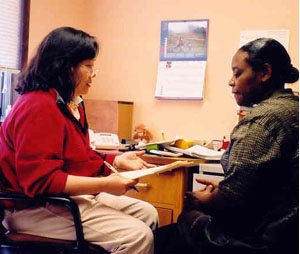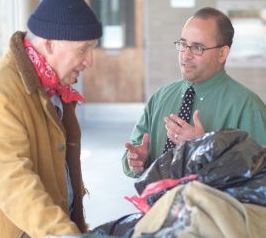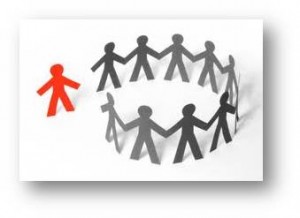Organizing the Addiction Counseling Process – Part 4
Part 1 | Part 2 | Part 3 | Part 5
Most rescue recovery programs for homeless addicts have no trouble filling up their beds. Yet, it is better to have a smaller program with committed participants than to have a large one filled with people who are not serious about changing their lives. A well-organized long-term recovery program is — “A planned, organized, and systematic delivery of services — using both internal and external resources– with the goal of meeting the unique needs of each individual.”

A 30-day “pre-program” can be instituted to serve as a trail period where prospective program members can demonstrate their commitment to recovery. Inevitably, this approach will promote stability in the long-term program by avoiding the turmoil that occurs when men and women come and stay for just a few days or weeks. A more consistent, serious group of people who can support one another on the road to recovery will surely develop.
Organizing the Addiction Counseling Process – Part 4 Read More »





 For Christian programs that work to help addicts, the primary goal is to help them to become integrated into two vital communities — the Church and the recovery community. If our goal is truly to work ourselves out of a job, then we must make sure we are spending enough time and energy preparing our clients for life after our programs. If we don’t, we have done them a great disservice. No matter how success we are with newly sober clients, they will still leave or programs as struggling baby Christians. We must be sure that these new believers knows where to find help when they experiences struggles, even 2, 5, 10 years and more in the future, no matter where they live.
For Christian programs that work to help addicts, the primary goal is to help them to become integrated into two vital communities — the Church and the recovery community. If our goal is truly to work ourselves out of a job, then we must make sure we are spending enough time and energy preparing our clients for life after our programs. If we don’t, we have done them a great disservice. No matter how success we are with newly sober clients, they will still leave or programs as struggling baby Christians. We must be sure that these new believers knows where to find help when they experiences struggles, even 2, 5, 10 years and more in the future, no matter where they live.


 We have what is well known as The Seven Deadly Sins
We have what is well known as The Seven Deadly Sins